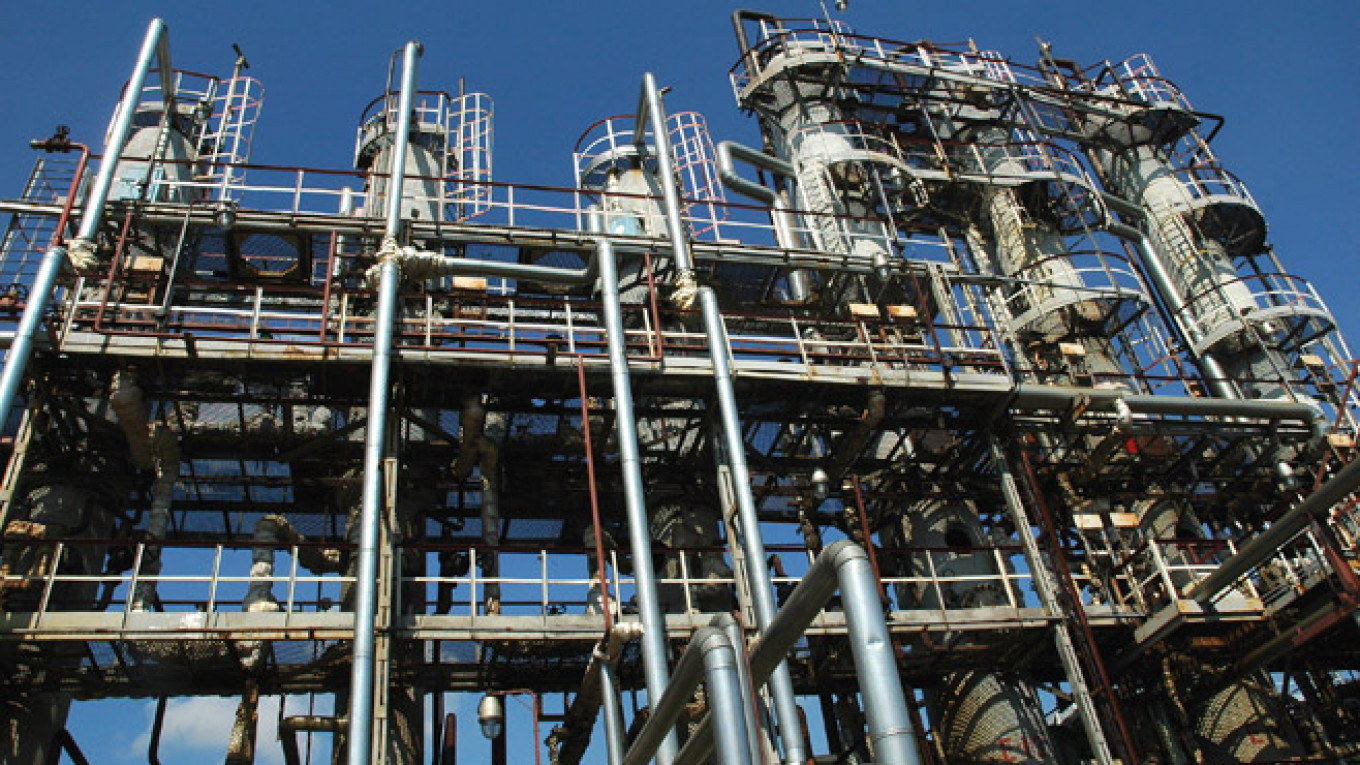LONDON — Russian oil output is expected to fall 8 percent in the next two years, the steepest fall since President Vladimir Putin took power at the end of 1990s, as low prices force companies to cut back on drilling in Siberia, a top Russian oil executive said.
Leonid Fedun, vice president and a large shareholder in Russia's top private oil firm LUKoil, said the drop could amount to as much as 800,000 barrels per day (bpd) by the end of 2016.
His forecast is one of the most pessimistic yet by a Russian oil executive since the country was hit by sanctions and a steep drop in oil prices.
By contrast, the energy ministry expects Russian output to be steady this year at around 10.56-10.60 million bpd. Oil and gas sales account for half of Russia's budget revenue.
Russian oil output halved in the 1990s following the collapse of the Soviet Union but has recovered by more than 70 percent on the back of high oil prices since Putin took over as president in 1999. Russia is the world's largest oil producer.
Sanctions imposed on the country over its role in the Ukraine crisis have drastically limited Russian firms' access to Western capital and technology over the past year while low oil prices are forcing them to slash exploration budgets.
"Everyone will reduce production because everyone is reducing drilling," Fedun said. He said he expected drilling in Siberia to drop by as much as 15-20 percent.
Fedun said LUKoil's output was likely to stay flat or drop slightly in 2015 as the company was drilling fewer wells in Siberia. In 2016, it could recover as it brings new fields in Russia on-stream, he said.
Refineries Suffer
Fedun also said he expected Russian refining to drop by around 800,000 bpd in the next few years due to recent tax changes, which will force inefficient refineries to mothball their activities.
This could lead to short-term sporadic spikes in oil exports as Russia's total refining runs will fall to 5 million bpd from the current 5.8 million, he said.
Fedun said LUKoil's Ukhta oil refinery in northern Russia, with a capacity of up to 80,000 bpd, might be among those which could halt processing due to low profitability.
LUKoil will maintain its dividend, Fedun added, even if oil prices fall to $40 per barrel because it was benefiting from lower capital expenditure due to a devaluation of the ruble.
He said in dollar terms capital expenditure will decline by 20-25 percent this year. LUKoil's cost of producing a barrel of oil had already fallen to $4.46 from $5.59 last year thanks to a weaker ruble, he said.
Earlier on Tuesday, LUKoil said its 2014 net income fell 39 percent due to weaker oil prices and non-cash impairment losses.
$100 per Barrel Again
Fedun said he saw oil prices returning to $80 per barrel or even $100 by the end of the year as production around the world was set to drop due to lower drilling activity.
"We are seeing a decline in drilling rigs in the United States. We see this happening in Russia … Latin America is also actively cutting drilling and in Nigeria we expect production to decline significantly. These are also difficult times for the North Sea," he said.
"In the second half of the year, we can confidently say we will see oil surpluses in storage and production beginning to disappear."
Fedun also said he expected U.S. shale oil to deter risky and expensive exploration such as deep water in the decades to come.
A Message from The Moscow Times:
Dear readers,
We are facing unprecedented challenges. Russia's Prosecutor General's Office has designated The Moscow Times as an "undesirable" organization, criminalizing our work and putting our staff at risk of prosecution. This follows our earlier unjust labeling as a "foreign agent."
These actions are direct attempts to silence independent journalism in Russia. The authorities claim our work "discredits the decisions of the Russian leadership." We see things differently: we strive to provide accurate, unbiased reporting on Russia.
We, the journalists of The Moscow Times, refuse to be silenced. But to continue our work, we need your help.
Your support, no matter how small, makes a world of difference. If you can, please support us monthly starting from just $2. It's quick to set up, and every contribution makes a significant impact.
By supporting The Moscow Times, you're defending open, independent journalism in the face of repression. Thank you for standing with us.
Remind me later.


